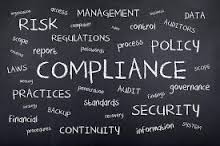The Often Ignored Importance of Antitrust Compliance (Part I of II)
 If you ask any Chief Compliance Officer whether their compliance program includes antitrust laws, they will respond quickly and tell you – “Of course we do.” If you follow up you initial question and ask how do you ensure compliance you will hear a single response – “We conduct training.”
If you ask any Chief Compliance Officer whether their compliance program includes antitrust laws, they will respond quickly and tell you – “Of course we do.” If you follow up you initial question and ask how do you ensure compliance you will hear a single response – “We conduct training.”
When you scratch the surface on antitrust compliance at major companies, you will usually hear about training. You will not hear about risk assessments, antitrust controls, audits, monitoring. I suspect that the only companies that have implemented anything more are those companies that have gone through an enforcement action.
If you think an FCPA enforcement action is difficult, an antitrust enforcement action is nothing to laugh about. In stark contrast to anti-corruption, the US Justice Department has a robust antitrust criminal enforcement program, coupled with a strong emphasis on individual prosecutions, on average three individuals are prosecuted for each company. The engine behind DOJ’s criminal cartel enforcement program is the well-established leniency program, which offers the company that first discloses its cartel liability with immunity for the company and its officers and employees.
Antitrust enforcement around the globe is well coordinated and becoming more commonplace, well beyond the EU and other significant countries. Global cartels often result in global enforcement actions where companies are required to pay fines and penalties to numerous jurisdictions.
DOJ’s Antitrust Division initially resisted the idea of awarding credit to violating companies that maintained a robust compliance program. From its perspective, if the compliance program worked, then the company would not have violated the antitrust laws. That simplistic view is now being replaced with a more sophisticated approach – companies that maintain robust antitrust compliance programs will receive credit from prosecutors.
In two speeches in 2014 (here) and 2015 (here) respectively, antitrust officials recognized that companies may be entitled to credit at sentencing (when not the first-in leniency applicant) for a pre-existing effective ethics and compliance program, and for remediation of an existing program once a violation was discovered.
In two separate cases, during 2015, DOJ’s Antitrust Division has credited two cartel violators for remediation of their compliance programs during a cartel investigation.
In Barclay’s May 20, 2015 plea agreement (here) for conspiracy to manipulate foreign exchange currency prices, Barclays paid $650 million, and an additional $60 million for violating a prior non-prosecution agreement. The fine amount included credit for Barclay’s remediation and improvement of its compliance program.
In a September 15, 2015 plea agreement with Kayaba Industry (here) for conspiracy to fix prices in the supply of shock absorbers for automobiles and motorcycles, the Justice Department credited Kayaba’s remediation efforts and agreed to a fine of $62 million. Specifically, the Antitrust Division cited five specific elements of Kayaba’s improved compliance program, including: (1) a direction from Kayaba’s president that a full and complete investigation be conducted and ordered all employees to cooperate with the investigation; (2) training of all senior management and sales personnel (classroom and one-on-one training for high risk employees); (3) an anonymous hotline was set up for employees to  report concerns and potential violations; (4) proactive monitoring, auditing and certification requirements for employees who have contacts with competitors and/or are involved in setting prices for products; and (5) discipline of employees involved who violate the compliance policy.
report concerns and potential violations; (4) proactive monitoring, auditing and certification requirements for employees who have contacts with competitors and/or are involved in setting prices for products; and (5) discipline of employees involved who violate the compliance policy.
The Antitrust Division has emphasized the need for companies to embrace and implement of culture of compliance, to implement extraordinary efforts in bringing about such a change and to produce demonstrable results – meaning a real and tangible improvement in the company’s compliance program.
In my next posting on this topic, I will examine the elements of an effective antitrust compliance program.















